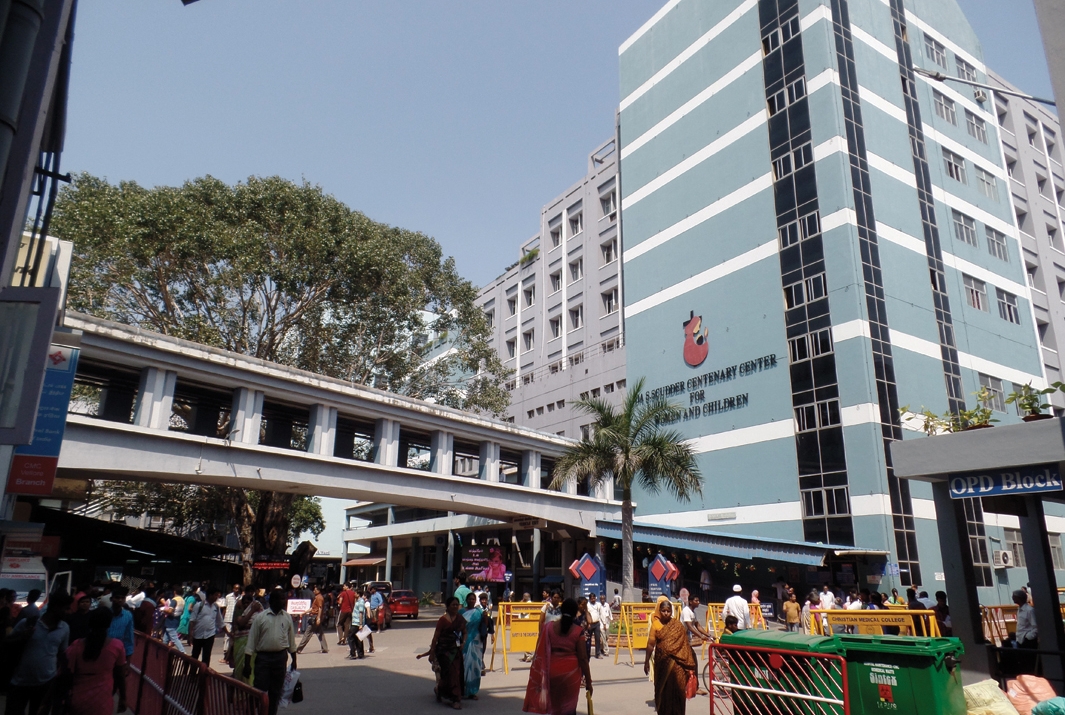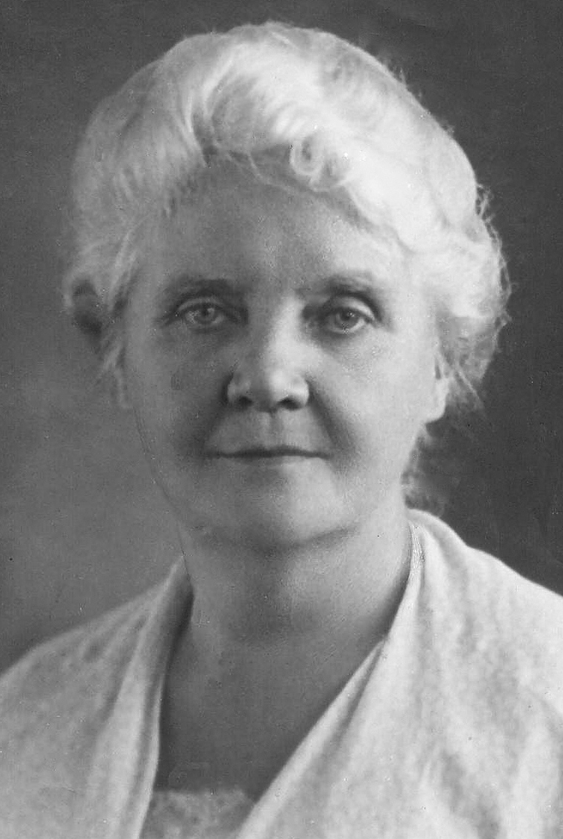
Dr. Ida Scudder, MD 1899. Photo credit: Christian Medical College
The tale of the “three knocks in the night” has become legend in the medical community of Vellore, India and beyond. Visiting her missionary parents in 1890 after graduating from a Massachusetts women’s seminary, Dr. Ida Scudder watched helplessly as, one after another, three men sought aid for their wives, who were in mortal danger during childbirth. Dr. Scudder’s physician father was willing to attend them — but their husbands, following strict religious and cultural prohibitions against women being seen by unrelated males, refused the aid. Dr. Scudder, having no medical training, could do nothing. The next morning, she was devastated to learn that all three young mothers had died.
For Dr. Scudder, those three knocks were a call from God. She abandoned her presumed path—marriage and children in the United States — and ultimately joined Weill Cornell Medical College’s first class, earning a medical degree in 1899. Returning to Vellore, she went on not only to treat thousands of patients but to found nursing and medical schools for women (which became coed in the 1940s), a thriving mobile clinic system, and a medical center and teaching hospital that has grown into one of the largest and most respected in South Asia. As one book on American missionaries notes: “In many ways, she was to India in her time what Mother Teresa was three decades later.”
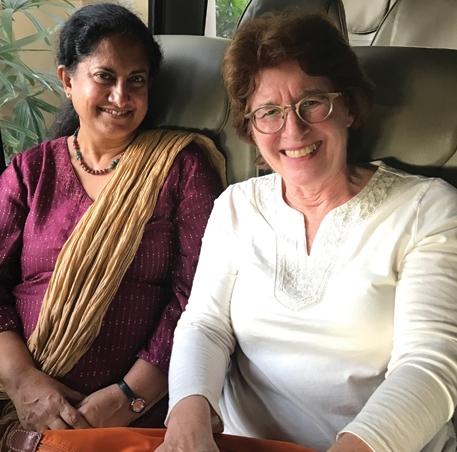
Dr. Madelon Finkel (at right)
Over the past 118 years, millions of patients and their families have benefitted from Dr. Scudder’s legacy. But it wasn’t until a decade ago that her alma mater connected with the institutions — run under the umbrella of what is now known as Christian Medical College (CMC) — that Dr. Scudder nurtured in Vellore, a city of more than a half- million people in the southeastern state of Tamil Nadu. Accepting an invitation to visit CMC in 2006, Dr. Madelon Finkel, professor of healthcare policy and research and director of the Office of Global Health Education, was struck by the tireless dedication of its staff, many of whom are CMC alumni. “I immediately fell in love with the place,” says Dr. Finkel, who now serves as secretary of the board of CMC. “There was something about it that I can’t describe. It was magical. I went as a jaded New Yorker, but I came back changed.”
In addition to establishing a successful screening program for cervical cancer at CMC, Dr. Finkel has sent numerous students to do research and clinical work there. As she puts it: “I tell them, ‘I can’t explain in words what you’re going to experience, but you will be transformed. You’ll become a more compassionate individual and a more compassionate physician. You’ll see diseases that people shouldn’t necessarily get or die of, but they do. You’ll see things that may be upsetting — but you’ll also see the dedication of physicians who literally come back after dinner every night to continue seeing patients. The city of Vellore is chaotic — there are people, traffic and animals in the streets at the same time — yet when you enter the medical center, it’s an oasis of calm.’ ”
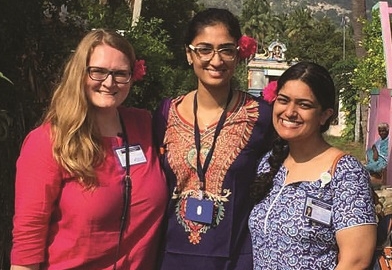
Dr. Rachel Rosenthal MD'17 (at left)
Rising second-years have spent summers in Vellore doing public health research, while fourth-years have gone on four- to six-week clinical rotations. The latter group includes Dr. Rachel Rosenthal, MD ’17, who went there during her last semester at Weill Cornell Medicine and is now a pediatrics intern in Los Angeles. “I had this idea of what a more ‘developing’ part of the world would be like, but the main medical center has every specialty you can imagine,” she says. “It’s a huge complex, and thousands of patients flow in and out every day. The volume, compared to what I was used to, was almost unfathomable.” In addition to shadowing mentors in child and adolescent psychiatry at the hospital, Dr. Rosenthal spent time in the mobile clinics that treat patients in rural areas outside Vellore. “The community program was unlike anything I’d experienced — the way they were meeting patients in their homes, schools or other gathering places to provide long-term monitoring for chronic illnesses, without placing the significant burden on patients of having to come into the hospital,” says Dr. Rosenthal. “Seeing how diseases we have here — hypertension, diabetes, some childhood illnesses — are managed in different settings that have access to different levels of resources was really educational.”
Like Dr. Rosenthal, Dr. Bella Vishnevsky, MD ’17, was drawn to attend Weill Cornell Medicine in part because of its strong global health offerings. Now an anesthesiology intern at Duke, she has vivid memories of her time in Vellore, including making house calls in rural villages and impoverished urban neighborhoods. During her time in the main hospital’s anesthesiology department, she was struck by how the physicians — well aware that their patients often pay out of pocket — were careful to prescribe the most affordable drugs. “It’s great to see how you can provide amazing care while keeping in mind a cost-efficient practice model,” says Dr. Vishnevsky, who also shadowed oncologists treating a high volume of patients.
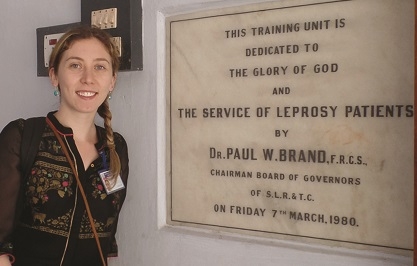
Dr. Bella Vishnevsky, MD ’17
When Shobana Ramasamy ’19 spent a summer doing public health research as a rising second-year, her experience was distinct from that of most visiting students. With family roots in the same Indian state, she grew up speaking Tamil and could communicate with the patients she met while shadowing physicians and conducting research into clinical measures of how morbid obesity — a skyrocketing problem in the region — impacts quality of life. “It helped them feel comfortable enough to open up to me,” she says of her language fluency. “It was more than just, ‘Here’s a physician,’ it was, ‘Here’s someone who can help facilitate my care.’ That was a beautiful gift to have.”
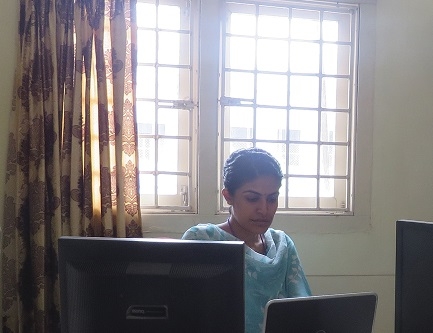
Dr. Shobana Ramasamy ‘19
Since Dr. Finkel first visited Vellore, she has returned annually to continue her cervical cancer work, which she has published in the Asia-Pacific Journal of Clinical Oncology and presented at global health conferences worldwide. In October, Weill Cornell Medicine will — for the first time — host the annual Dr. Ida S. Scudder Humanitarian Oration, co-sponsored by the Office of Global Health Education and the CMC Vellore Foundation. (The speaker is Dr. Roger Glass, associate director for international research at the NIH and director of its Fogarty International Center.) And this summer, Dr. Finkel hosted a professor from CMC, Dr. Reena George, who was researching the early history of medical education in Vellore. “It’s wonderful that this connection could be renewed,” says Dr. George, head of CMC’s palliative care unit. “From an intercultural, interdisciplinary perspective, it’s good when the strength and resources of two institutions in very different contexts come together to understand healthcare needs and delivery. You realize that wherever you practice, there is not just one way of doing things. Wherever we work, there are always new things to discover, as we try to blend creativity, competence and compassion to serve our patients.”
— Beth Saulnier
This story first appeared in Weill Cornell Medicine, Vol. 16. No. 3

